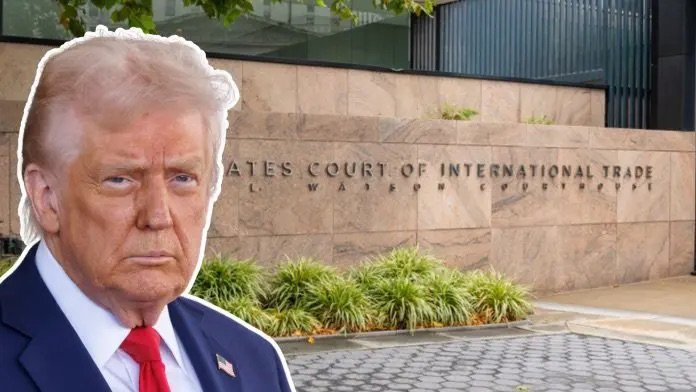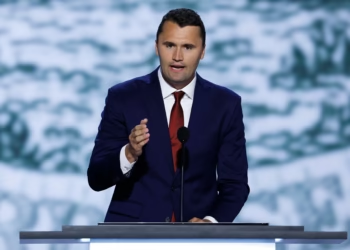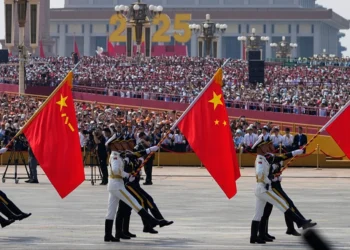WASHINGTON, D.C. — In a major legal rebuke to former President Donald Trump’s trade policy, a U.S. federal court has ruled that he exceeded his legal authority in imposing sweeping global tariffs under the International Emergency Economic Powers Act (IEEPA)—a law originally designed for national security threats, not economic disputes.
The U.S. Court of International Trade, in a decision issued Wednesday evening, struck down Trump’s controversial “Liberation Day” tariffs as well as fentanyl-related levies against Canada, Mexico, and China. However, tariffs on steel, aluminum, and auto imports remain in place, as they were implemented under a different legal provision.
The Trump administration immediately filed an appeal, promising to fight the ruling all the way to the Supreme Court.
White House Reaction: ‘Courts should have no role’
The Trump administration quickly pushed back. White House Press Secretary Karoline Leavitt called the ruling “a troubling and dangerous trend” of judicial interference, adding: “The courts should have no role here.” She emphasized that Trump “pledged to put America First” and that his administration remains “committed to using every lever of executive power.”
Kush Desai, another White House spokesperson, doubled down: “It is not for unelected judges to decide how to properly address a national emergency.” He said Trump’s use of IEEPA was justified by drug smuggling and human trafficking threats from abroad.
The administration declared a national emergency shortly after Trump’s inauguration, claiming Canada failed to adequately act against drug and human trafficking organizations. However, the court ruled the tariffs did not appropriately “deal with” the threats as defined under the IEEPA and were therefore outside the bounds of presidential power granted by Congress.
Court ruling: “We do not read IEEPA to delegate an unbounded tariff authority to the President.”
Legal Experts: White House Has 10 Days to Comply
According to international trade lawyer William Pellerin, the White House must cease collecting duties within 10 days. However, he warned of potential tactics by the administration to delay enforcement during the appeal process.
Other legal experts note that while the ruling was a win for constitutional checks and balances, Trump could still use alternate legal mechanisms to reimpose tariffs, albeit with different justifications.
Business Groups: Uncertainty Persists
Business leaders in Canada welcomed the ruling but urged caution.
Canadian Chamber of Commerce: “Ultimately, the end of this trade war with the U.S. will not come through the courts, but through a new negotiated agreement.”
Toronto trade lawyer Sean Stephenson added: “Nothing changes overnight,” emphasizing the long road ahead given the U.S. appeal and the administration’s ability to find workarounds.
Plaintiffs Celebrate “Massive Power Grab” Defeat
The plaintiffs—represented by the Liberty Justice Center—hailed the decision. Ilya Somin, a George Mason University law professor, said the court had struck down “a massive power grab by the president.” Small wine importer Victor Schwartz called the ruling a “win” for American small businesses, though he expects to see the case go all the way to the Supreme Court.
Canada’s Government ‘Welcomes’ Decision but Warns of Ongoing Threats
Addressing Parliament, former Bank of Canada governor and now MP Mark Carney said the decision was “consistent with Canada’s long-standing position that the U.S. IEEPA tariffs were unlawful.” Still, he warned that Canada’s trading relationship with the U.S. remains under serious threat, particularly due to the remaining tariffs on steel, aluminum, and autos.
“It remains the top priority of Canada’s new government to establish a new economic and security relationship with the United States,” Carney added.
Analysis: A Blow to Trump’s Three-Legged Economic Strategy
The court’s decision could deal a serious blow to Trump’s overall economic agenda, which relied on three pillars: tariffs, spending cuts, and tax cuts. The ruling effectively removes a key leg of that strategy, at least temporarily.
While officials say the administration has backup tools to pursue similar trade actions, the ruling throws current trade policy into legal and political uncertainty. One senior Trump official told CNN: “The courts are a pretty obvious foil across the board and we haven’t backed down on anything else so far.”
Wall Street Rises on Tariff News
Markets reacted positively to the ruling:
-
S&P 500 rose 0.6%, nearing its all-time high
-
Nasdaq gained 0.9%
-
Dow Jones Industrial Average climbed 80 points (0.2%)
-
TSX Composite Index fell 61.53 points to 26,221.92
-
Canadian dollar inched up to 72.40 cents U.S.
Markets in Asia surged earlier, being the first to respond to the late-night ruling.
What’s Next?
Though the ruling marks a major legal defeat for Trump’s use of emergency economic powers, the fight is far from over. The administration is already pursuing an appeal in the U.S. Court of Appeals for the Federal Circuit, with the goal of ultimately taking the matter to the U.S. Supreme Court.
In the meantime, the world—and especially key U.S. trading partners like Canada—are watching closely to see whether Washington will change course or escalate its trade war through new legal routes.

 English
English



























































